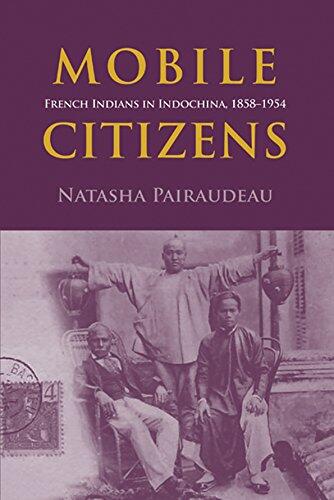
Mobile Citizens: French Indians in Indochina, 1858-1955
由
Natasha Pairaudeau
还没有评分
格式
平装书
页数
390
语言
英语
已发布
Mar 1, 2016
出版商
NIAS Press
ISBN-10
8776941590
ISBN-13
9788776941598
描述
Set against the backdrop of French colonial rule in Indochina, this thought-provoking study explores the complex lives of French Indians from 1858 to 1955. Natasha Pairaudeau delves into the experiences of these individuals who navigated their identities in the intersection of French and Vietnamese cultures. This period, marked by a tumultuous historical landscape, unfolds through vivid narratives of adaptability and resilience among a community often overlooked in broader historical accounts.
Pairaudeau meticulously examines the socio-political dynamics that shaped the lives of French Indians, highlighting their roles as both participants and observers in the colonial enterprise. Through extensive research and firsthand accounts, the author sheds light on how these citizens maneuvered through shifting social hierarchies, colonial policies, and their own aspirations, ultimately making a lasting impact on the region’s cultural tapestry.
With a nuanced understanding of identity and mobility, the book challenges conventional perspectives on colonial legacies while providing a rich analysis of intersectionality in a colonial setting. Readers will find themselves reflecting on the fluidities of identity, belonging, and the implications of colonialism in shaping personal and collective histories.
Pairaudeau meticulously examines the socio-political dynamics that shaped the lives of French Indians, highlighting their roles as both participants and observers in the colonial enterprise. Through extensive research and firsthand accounts, the author sheds light on how these citizens maneuvered through shifting social hierarchies, colonial policies, and their own aspirations, ultimately making a lasting impact on the region’s cultural tapestry.
With a nuanced understanding of identity and mobility, the book challenges conventional perspectives on colonial legacies while providing a rich analysis of intersectionality in a colonial setting. Readers will find themselves reflecting on the fluidities of identity, belonging, and the implications of colonialism in shaping personal and collective histories.